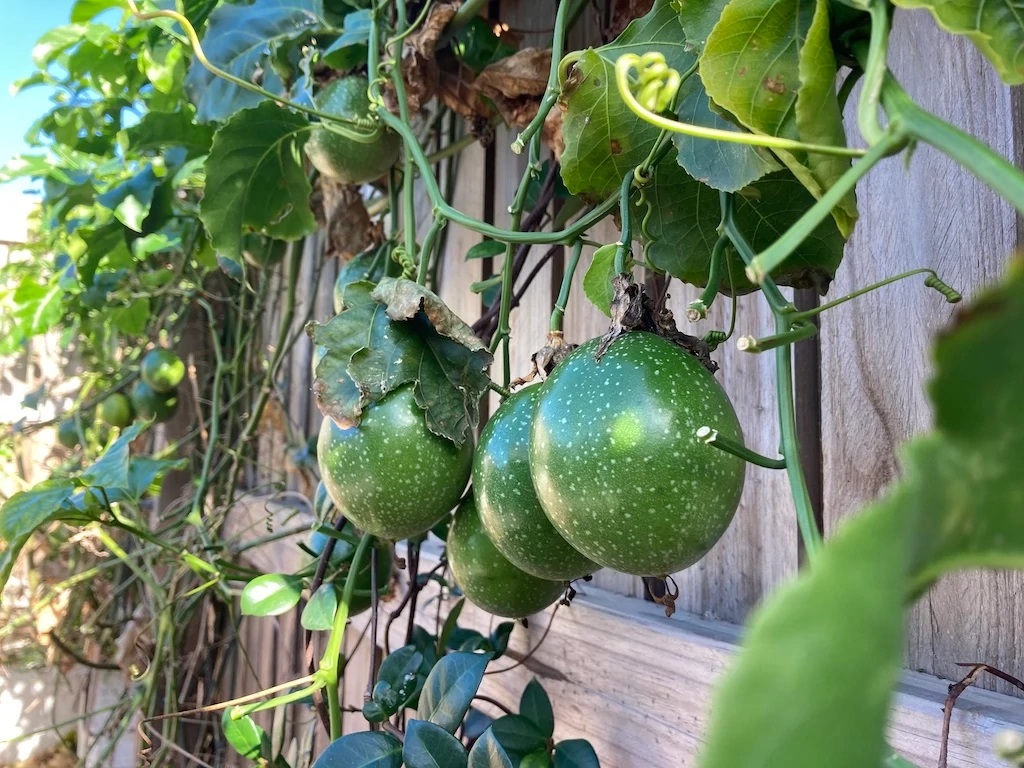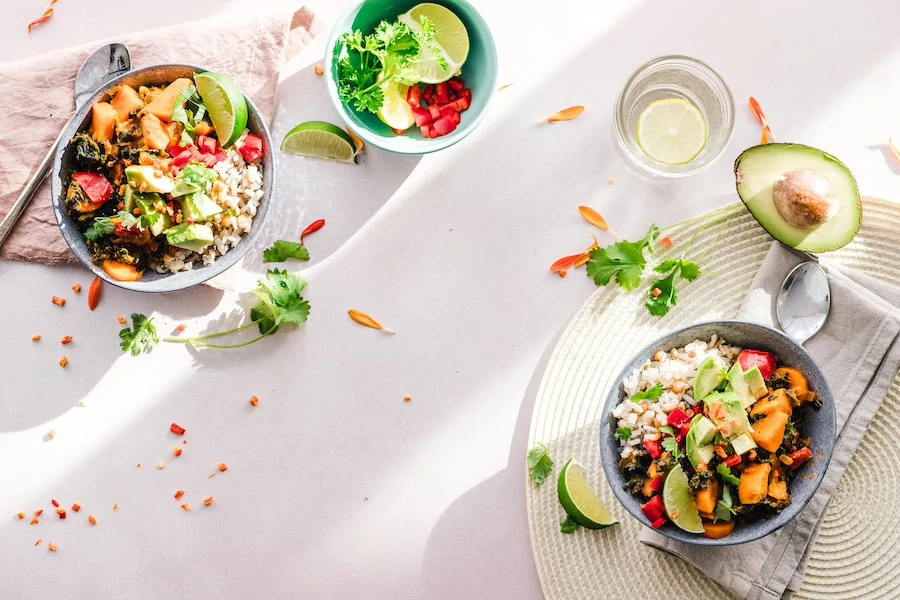If you find yourself on the fence about making the switch to an eco-friendly lifestyle, perhaps this comprehensive article will give you a reason, or rather 52 reasons, to make some important changes. That’s one reason a week for an entire year to make the most important transition of your life. Not to mention, I’ve provided over 80 strategies to help you do so!
I know I don’t need to preach to the converted about the benefits of an eco-friendly lifestyle. We know the environment is deteriorating. We can see it around us.
Can we help reduce adverse impacts? Yes.
What does it take? A commitment to braking bad habits and putting ourselves first (and by default, Mother Earth and others around us).
Why do we care? Because we want to preserve the planet for the remainder of our time on it, and for our future generations.
Is it all doom and gloom? Absolutely not.
How can I get started? Keep reading!
Let’s dive in.
Environmental benefits of eco-friendly living
When we think about the benefits of eco-friendly living practices, at the forefront of our minds is the environmental benefits.
1. Less fossil fuel use & reliance
As a non-renewable resource, fossil fuels pollute the environment and contribute to global climate change. When we choose eco-friendly products or practices, we are choosing to buy from companies making proactive efforts to reduce their use of fossil fuels.
Our top strategies to implement:
- Conserve electricity.
- Reuse products.
2. Less plastic use
Americans collectively generate 40 million tons of plastic waste every single year. Given that much of this waste ends up in our oceans, it is important that we take proactive steps to reduce plastic use wherever we practically can.
One of the first steps you can take to reduce plastic is to ask yourself the following before buying an item that contains plastic, Will I use this product/item more than once?
Many plastics are designed to be single use. This means that they serve a purpose that is measured in days (or less!). Worse, they take another hundred years or so to decompose!
Our top strategies to implement:
- Bring your reusable coffee cup.
- Say no to the straw.
3. Less pollution & landfill
The practice of eco-friendly living means that you are naturally reducing the quantities of things you buy and making more mindful purchases.
Eco-friendly products typically contribute to less landfill because they are packaged in recyclable or decomposable materials and contain less plastic.
Our top strategies to implement:
- Donate what you do longer want or use.
- Buy items with less packaging where practical.
4. Improved soil quality
Healthy soils are rich in minerals, nutrients and organic matter.
Modern day agricultural practices have degraded much of the worlds soils meaning they have a reduced capacity to support plants and animals. This results in the use of artificial fertilisers and chemicals to combat diseases that nature would have typically managed.
We when improve soil quality by promoting the use of natural fertilisers, less tilling and natural herbicide management (among others sustainable practices) the benefits flow on to society. This may be in the form of healthy soil microbes that regulate our immune responses.
Our top strategies to implement:
- Hand pull rather than spray any weeds in your garden.
- Add compost (i.e., organic matter) to your soil.
Just about every living thing relies on water to live. While many humans have the daily luxury of using water to shower, make our coffees, relax in the pool, flush our toilets, and water our gardens, millions don’t. And if some humans cannot readily access fresh water, you can guarantee lots of plants and animals also cannot.
5. Water wiser
Being water wise is a fantastic eco-living practice we can implement daily. The more there is to go around, the more resilient our natural environment will be.
Our top strategies to implement:
- Take shorter showers.
- Make sure your dishwasher is FULL before you start a load.
- Plant native plants in your garden that are adapted to the local climatic conditions.
6. Cleaner water
‘Clean’ water isn’t just about how clear it looks. Clean water is determined by water quality which is includes chemical, physical and biological characteristics such as bacteria. Beside treating water, cleanliness can be improved by reducing the number of contaminants that end up in our waterways. Water contamination is mainly caused by chemicals and waste products like oil and plastic.
Our top strategies to implement:
- Reduce the use of harmful chemicals that are washed down you household sink – think shampoos, conditioners, soap, and cleaning products.
7. Less deforestation
When we embrace eco-friendly living, we reduce our use of ‘new’ products, instead opting for repurposed and recycled ones. By doing so, we become part of a global community moving away from a consumerism society. This helps to protect our natural forests by lowering demand for wood-based products.
Our top strategies to implement:
- Buy and use recycled products.
- Use less paper.
- Avoid products that contain palm oil.
- Palm oil plantations have become one of the more modern-day contributors to deforestation, particularly in tropical environments where some of the world’s most valuable rainforests remain. Today, palm oil is found in not only food products, but lipsticks, soaps, and detergents.
8. Less erosion
Avoiding non-environmentally friendly products that contribute to deforestation, helps to reduce bare ground exposure. Bare ground is easily eroded by wind, water and animals and is a big contributor to reduced water quality. It is also extremely hard for plants to establish on bar ground, thus the erosion issues continue.
Our top strategies to implement:
- Put mulch on your gardens.
- Maintain permanent soil cover.
9. Support for renewable energy sources
If we want to dramatically reduce global carbon emissions, then renewable energy sources like solar, are the way of the future.
Not only is renewable energy healthier for the environment, but they exist all around us.
Our top strategies to implement:
- Invest in renewable energy sources like solar.
- Communicate your wants and needs with your electricity provider – the more people that do so, the louder the message will be heard among the higher ups!
10. Lower carbon & greenhouse gas emissions
You won’t be surprised to see this one on the list!
Year on year, atmospheric carbon dioxide levels continue to rise, pushing us dangerously close to our goal of no more than 1.5 degrees Celsius global warming above pre-industrial levels. Among some of the biggest individual contributors to carbon emissions are household energy, consumption, food consumption and transport.
Thankfully, people are increasing looking for alternative ways to reduce unnecessary consumption and save money (remember, consumption = cost).
Our top strategies to implement:
- Turn out the light when out of sight 😉
- Avoid food waste.
11. Support for animal welfare
The welfare of humans and animals is intertwined and will be even more so with future climate changes. When we care for our wild animals (and their habitats), we help to maintain natural ecosystem processes that promote food security and disease resilience.
Our top strategies to implement:
- Reduce meat intake.
- Support brands that don’t test on animals.
12. Support for sustainable agricultural practices
Sustainable agricultural practices aim to reduce environmental impacts to enable future generations to survive tomorrow. This includes maintaining healthy soils and biodiversity, creating climate resilient landscapes, and using innovation to improve the efficiency of farming practices.
Sustainable agriculture still has a long way to go, but there are a few things you can do to support future progress in the industry – actions can speak louder than words!
Our top strategies to implement:
- Buy local organic produce.
- Avoid fresh foods with plastic packaging.
- Buy foods in season.
- Purchase from businesses with sustainable or green accreditations – beware of greenwashing!
13. Biodiversity conservation

You can directly contribute to biodiversity conservation by volunteering your time to projects in your local area or donating to funds like the World Wildlife Fund.
‘Diversity’ is the key to resilience, and therefore it’s important we prioritise biodiversity conservation to ensure we have resilient landscapes and habitats – remember, the welfare of humans, animals and plants are intertwined!
Our top strategies to implement:
- Respect biodiversity and habitats.
- Volunteer your time to conservation projects.
- Know what ingredients are in the products you buy.
14. Natural resource preservation
“Nature makes human development possible but our relentless demand for the earth’s resources is accelerating extinction rates and devastating the world’s ecosystems” – Joyce Msuya, Former Deputy Executive Director, United Nations Environment Programme.
Natural resources include any resources that regenerate in one way or another. Some regenerate quickly (e.g., plants). Some regenerate slowly (e.g., coal).
As a global population, we seriously need to rethink and reprioritise our use of resources to reduce the strain on the environment. It’s considered a human right to use natural resources, but what is it considered when we lose them?
Our top strategies to implement:
- Cut down on what you throw away – reduce, reuse, recycle!
15. Cleaner air
We can’t survive without clean air. Thankfully, eco-friendly products and practices have been designed to improve air quality by decreasing pollutants. This goes for both the indoor and outdoor environment. Indoors, we can say no to artificial perfumes and cleaning products. Outdoors, we can reduce our reliance on motor vehicles for transport.
One of the most recent examples of how air quality can improve when we reduce transport reliance occurred during the COVID pandemic. With less air travel and strict lockdowns, air pollution in major cities around the world drastically improved.
Our top strategies to implement:
- Avoid artificial fragrances.
- Reduce aerosol use.
- Ride share or walk.
Financial benefits of eco-friendly living
There is a misconception that buying and using eco-friendly products and services is always more expensive than traditional alternatives. While this may be true for some items, my personal experience has shown me otherwise. The extra thought and care that has gone into making my eco-friendly products makes them last longer.
Too often we get caught up in initial upfront cost, rather than asking ourselves what the cost per use may translate to, not to mention the waste savings.
16. Lower food costs
Mindful grocery shopping can save you money, especially when bulk buying foods you consume weekly. Planning can also allow you to cut down unnecessary spending and reduce the rushed, ‘I don’t have time to cook, so we’ll just order take-out’.

If you’ve got extra motivation, I recommend growing your own fruit and vegetables. Doing this has been one of the most rewarding hobbies. I also get the added satisfaction of knowing what my produce has and hasn’t been exposed to.
Our top strategies to implement:
- Eat less take-out.
- Grow your own fruit and vegetables.
17. Reduced transport costs
If you’re not driving around everywhere you’ll obviously reduce your transport costs. But did we also mention you’ll be contributing to improved air quality and less noise pollution? Now we have 😉
Our top strategies to implement:
- Walk or bike to work.
- Take public transport.
18. Lower energy bills
Whether you have solar or not, eco-friendly living can reduce your energy bill by instilling good habits such as switching off lights and electronics when they aren’t needed. There are also some great energy saving products and devices available.
Our top strategies to implement:
- Turn off appliances when not in use.
- Switch to LED.
19. Less unnecessary spending
A reduction in unnecessary spending is probably one of the first things you’ll notice by making the switch to an eco-friendly lifestyle. This is because an eco-friendly ethos is all about reducing consumption, repurposes what we can and recycling what we can’t. If we’re not consuming it, we’re not spending money on it and that’s a win we can all get behind!
Our top strategies to implement:
- Only buy what you need – put 24 hours between you and your purchases to help you figure out what you NEED versus what you WANT.
20. Investment in greener future businesses
As consumers, we can help drive investment in the right types of businesses by supporting brands striving for a ‘greener’ future. These are brands that uphold the best interests of both their local and global environment, meaning that communities and local economics will also be better supported.
Our top strategies to implement:
- When purchasing, support businesses who take responsibility for reducing their impact on the environment.
21. Save money for your business
Did you know that your business might be able to benefit from tax breaks, subsidies, and savings by implementing eco-friendly practices?
With the increasing demand for social responsibility and eco-friendly products and services, you might be able to take advantage of government financial incentives. Incentives might be offered for businesses using more fuel-efficient vehicles or switching to energy-efficient appliances that reduce power use.
Our top strategies to implement for those in business:
- Research tax benefits, financial incentives and government subsidy benefits which may be applicable to your business and your businesses’ journey to becoming more eco-friendly.
- For non-business owners – get behind local businesses striving to make an positive impact.
22. Improved local economies
You’re likely to reduce your overall spending by embracing an eco-friendly lifestyle, and when you do spend, you’ll be more likely to spend locally.
Buying from local businesses boosts the local economy. It also fosters stronger community relationships and reduces the environmental impacts associated with the transport industry.
Our top strategies to implement:
- Support local businesses where possible.
23. Reduced health expenses
Eco-friendly living is a cleaner and greener way of life. It involves a change in our consumption habits and behaviour including consuming fresher foods which have been exposed to less chemicals and less plastic.
When we reduce our exposure to toxic, non-natural products, we are likely to not only feel healthier, but BE healthier.
Our top strategies to implement:
- Consume more fresh foods and less packaged foods.
- Avoid the use of toxic chemicals in your home.
Psychological benefits of eco-friendly living
The psychological benefits of an eco-friendly way of life are often the most overlooked. However, these intangible benefits can often be the most impactful to us as individuals on our eco-friendly journey.
24. Improved ability to cope with eco-anxiety
The term ‘eco-anxiety’ has been used to define human distress about the future of the climate and state of the environment.
It can be hard to escape unfortunate news surrounding habitat destruction, rising ocean temperatures and extreme climate events. But what our news often fails to communicate are all the positive movements and change individuals, families, communities, and organisations are making each day all over the world. It’s not all doom and gloom people!
When you embrace an eco-friendly lifestyle, you become more self-aware of the small changes people can make to help the environment. You will develop a stronger and deeper connection with nature and a better understanding of what’s within your control.
Our top strategies to implement:
- Focus on things that are WITHIN your control.
25. Accountability to future generations
There is a famous Native Amercian Proverb that goes…
“We do not inherit the earth from our ancestors, we borrow it from our children”.
I love this because it really drives home the importance of doing what we can to ensure others can enjoy and experience life in future. Yes, we all have the responsibility to make eco-friendly choices, but we can only hold ourselvesaccountable. Everybody else and their actions, are outside our control.
Lead by example and instil what you can in your children, but at the end of the day, rest easy knowing you did your best for the day and for the future generation and the health of the planet.
Our top strategies to implement:
- Educate and share your eco-friendly experiences with others, but don’t try to enforce them – they are outside your control.
26. Increased happiness and gratitude
Adopting eco-friendly practices to become environmentally friendly is a mindful choice you make. When we become more mindful, we develop a deeper appreciation for things and start to live a more meaningful life.
Our top strategies to implement:
- Practice gratitude and self-love
- Journal about the positive changes you’re implementing each day – you’ll feel happier for it 🙂
27. Higher self-esteem & pride
What better way to toot your own horn then to say you are an environmentally conscious, eco-friendly badass?!
Seriously. Give yourself a pat on the back if you can confidently say you try your best daily to make more sustainable choices to reduce your impact on the planet. And don’t be hard on yourself – no one’s perfect (me included!).
Nothing gives me more pride than knowing I’m in control of the impact I have on Earth each day and that I get to make the CHOICE to make it a positive impact.
Our top strategies to implement:
- Toot your own horn – you’re a legend (especially if you’ve stuck with me this far!).
28. Reduced stress
Can an eco-friendly lifestyle really reduce stress you ask? Well, yes, it can!
Not only does eco-friendly living give you the peace of mind that you’re treating Earth with the same kindness it treats you with, but it also teaches us to be less of a consumer. By doing so, we naturally begin to declutter and donate or repurpose things around our homes. Decluttering has been scientifically proven to reduce stress and improve concentration!
By nature (pun intended), the adoption of eco-friendly practices also mean we spend more time outdoors in nature!
Our top strategies to implement:
- Donate what you don’t need to declutter your space.
29. Greater sense of control
I alluded to this one under ‘Accountability to future generations’, but felt it deserved its own spotlight.
You lost control of your life a long time ago. Don’t fret, if you’re reading this, you’ve likely regained control. I know this because when we make proactive decisions and begin to change our habits, we start to take back control of our lives. Going eco-friendly is a choice. It involves undoing what we know and what is comfortable. It gives you a greater sense of control because you’re in the driver’s seat of your life. This control will spread to many other areas of your life helping to create a strong and resilient you 🙂
Our top strategies to implement:
- Make the change and regain control over your life.
30. Sense of community
My eco-friendly journey has been most impactful in providing a sense of belonging. I feel positive vibrations and a deep, emotional connection to the eco-friendly community.
A sense of community doesn’t have to come from meeting like-minded people in the flesh. For me, it’s a psychological sense of community. One with deep roots, big hearts and even bigger aspirations to make our world a better place.
Our top strategies to implement:
- Join a local conservation group or find like-minded individuals to share your passion for eco-friendly living – you could even join a Facebook group or forum!
31. Boost in creativity
Our physical environment has a tremendous effect on our creativity – not to mention our mood and stress levels. Without creativity, we can’t generate new ideas or solve problems.
Studies have found that when we improve our physical environment by immersing ourselves in natural environments, we stimulate our curiosity and imagination. Naturally (I did it again), by adopting eco-friendly practices we expose ourselves to a physical environment more conducive to creativity.
Our top strategies to implement:
- Talk a walk among nature to get those creative juices flowing and redirect your attention.
Societal benefits of eco-friendly living
Society is where we really start to see the compounding benefits of eco-friendly living – my positive changes and your positive changes collectively combine and ripple through the community. The result…more eco-friendly warriors!
32. Improved public health
Improved public health outcomes from eco-friendly living come from the proactive choices we as an eco-minded community take to reduce our impact on the environment.
Think about it. The more people that start to walk or ride to work, the better local air quality will be. These people are furthermore benefiting their respiratory health which reduces the risk of heart disease and avoidable hospitalisations. Noise pollution is reduced. People feel less stressed.
I really could go on and on, but hopefully you get the bigger picture of how your personal contribution starts to have a far greater reach on the health of others.
Our top strategies to implement:
- Find ‘active’ ways to get to around your local town and to work.
33. Reduced toxin exposure
Some examples of how an eco-friendly lifestyle helps to reduce toxin exposure include a reduction in all-round chemical use and less exposure to toxic materials in personal care products and foods.
Our top strategies to implement:
- Keep harmful chemicals out of the house. Make your own natural cleaning products at home.
- Opt for fragrances made with natural and organic oils.
34. Healthier foods
When it comes to choosing eco-friendly food options like locally grown organic produce, you’re choosing healthier foods. These foods generally have a lower carbon footprint (they’ve travelled less to get to your local store), haven’t been sprayed with harmful pesticides and are fresher.
I generally recommend that people decrease their meat intake too. A diet high in fruits, vegetables, grains, seeds, nuts and legumes is generally better for the health of humans and the environment.
I would like to point out however, that switching to a complete plant-based diet isn’t suitable for everyone just as it isn’t a cure for the environment – you still need cleared land and lots of it to grow fruit and vegetables!
Our top strategies to implement:
- Eat a varied, plant-heavy diet, sourcing local products where possible.
35. More green spaces
Not only will your eco-friendly lifestyle expose you to more green spaces, but society will start to demand more of them as the eco-friendly community grows. Green spaces contribute to improving air quality, regulating temperature, habitat for biodiversity, stress alleviation, social interaction and more!
Our top strategies to implement:
- Responsibly use public green spaces where they’ve been provided.
- Write a letter to your relevant local authority to praise them for providing public green spaces.
- Personally thank your employer for providing green spaces in the office. Gently encourage those who haven’t.
36. Less noise pollution
As we become more mindful of our behaviours and surroundings, we soon realise there’s a hell of a lot of noise! If you can clear the head noise, you’ll soon realise that the kids are yelling too loud, the tv is blaring, the radio is pumping and there must be a traffic jam.
Ok, so that was a little dramatic. However, when we become more conscious of the noise and when we do or don’t need it, we little by little start to decrease noise pollution. I don’t know about you, but I already feel more relaxed!
Our top strategies to implement:
- Opt for quieter transport methods.
- For goodness’ sake, turn the music down!
37. Support for eco-tourism
Travel is one of life’s greatest indulgences. Unfortunately, travel often comes at a price to not only those travelling, but the natural places people visit. Some of these places include fragile reef ecosystems and forests.
Thankfully, eco-tourism encompasses the decision to travel responsibly and leave minimal trace. It also provides greater protection for natural places and their cultural history.
Our top strategies to implement:
- Do your research into company ethics and values before booking that next holiday.
- Consider holiday destinations closer to home to reduce the carbon footprint of your trip.
38. Improved productivity at work
Not only do greener offices look more inviting and improve physical working conditions, but they are also more productive offices 😱
Greener offices may be visually greener with plants, garden windows or access to a rooftop garden. This helps to reduce stress and promote creativity and focus, allowing you to get your work done more efficiently. In other cases, they have better ventilation or lighting which can reduce eye strain and bad posture. These combined factors are important for maintaining a positive mental state and productivity.
Our top strategies to implement:
- Introduce some greenery to the office.
- Start up a colleague sustainability group to help lobby for greener changes around the workplace.
39. Less food waste
Approximately one-third of food across the world is wasted. Wasted food means wasted energy and water resources that were used to grow, harvest, transport, and package it. In most instances, food waste goes to landfill where it further contributes to greenhouse gas emissions.
By living more eco-friendly we can thankfully help reduce food waste because we are more likely to plan and only buy what we need. We are also more aware of ways to repurpose any food scraps.
Our top strategies to implement:
- Repurpose food scraps – I personally love PlantYou for inspiration!
40. More green sector jobs
Demand is increasing for green solutions to complex world issues and for environmentally friendly products, and that means more green sector jobs!
This is something we love to see because the more green jobs there is, the more sustainably minded and educated people there will are. These educated individuals are the important ingredient for spreading knowledge and play a pivotal role in spreading the word about eco-friendly solutions and products.
Our top strategies to implement:
- If you work in the green sector, don’t shy away from spreading the word!
41. Improved food security
People often mistake food insecurity to mean that there isn’t enough food to go around. In fact, it is about the accessibilityof food for people.
Food can be inaccessible for many reasons, like transport limitations, affordability, inequality in distribution and avoidable food waste. An eco-friendly mindset makes us more aware of this and enables us to get our problem-solving hats on and do our bit to help.
Our top strategies to implement:
- Donate food to someone in need if you know you don’t need it – never just throw nutritious food away.
42. Sustainable waste management
Sustainable waste management aims to keep materials in use for as long as possible to minimize the amount of waste disposed. It considers all materials from food, plastic, metals, and woods.
If we can reuse and repurpose materials so that we are only disposing of what we can’t use again (and hopefully recycling it), we help alleviate the strain on waste management facilities and reduce total consumption.
Our top strategies to implement:
- Reduce the amount of waste you generate,
- Reuse what you can,
- Recycle anything else.
43. Promotion of sustainable development
Just like eco-friendly living, sustainable development is about meeting our needs today without compromising the ability of future generations to do so. It is based on the three pillars of sustainability: environmental preservation, social equity, and economic viability.
Our top strategies to implement:
- Lobby your city or community to begin developing initiatives to support sustainable development goals.
44. Improved resilience to natural disasters
Healthy ecosystems are more resilient ecosystems. If we can enhance, restore, and protect green infrastructure, that is, the plant kind, we can reduce the impacts of disasters including prolonged droughts and flash floods.
Thankfully, our eco-friendly practices help to reduce native vegetation clearing and on a smaller scale, promote more green spaces. By doing so, we allow nature to do what she does best while also enhancing community safety and enjoyment.
Our top strategies to implement:
- Allow natural cycles to be mimicked as much as possible. You can do this by using vegetation and gardens to capture rainfall and filter water through to the water table. When we have more hard surfaces like concrete, much of our water is lost and becomes polluted on its way to the oceans.
45. Support for fair trade practices
Ethical sourcing and fair trade practices help create sustainable, responsible communities with fairer wages and safer working conditions.
As eco-friendly consumers we play an important role in driving fair trade demand, and by doing so, further promote environmentally friendly agricultural practices (e.g., organic farms and reduced carbon emissions farms).
Our top strategies to implement:
- Buy fair trade products and encourage family and friends to do the same.
46. Preservation of cultural knowledge and practices
When we uphold an eco-friendly, low-impact way of life, we help to preserve cultural practices. These practices, both historically and today, focus on resource conservation, minimizing impacts and using seasonal, local resources.
Our top strategies to implement:
- Learn about the cultural history of your area and promote the retention of cultural knowledge.
47. Leads a healthier lifestyle
You’ve probably got the idea by now, but in case you missed something, your eco-friendly lifestyle means you will lead a healthier life. One that sees reduced exposure to harmful toxins, more fresh air, higher-quality foods and the list goes on!
Our top strategies to implement:
- Start living that eco-friendly life (if you haven’t already!).
48. Improved environmental stewardship
Environmental stewardship is the responsible use and protection of the environment through activities, behaviours, and decisions we, as the stewards, make. Stewardship has quantifiable benefits such as restoring a habitat, reducing waste and sharing information at events.
When you adopt an eco-friendly practice into your daily activities, you are implementing an environmental stewardship action – good on you!
Our top strategies to implement:
- Participate in environmental events in your area.
- Educate your kids, the future leaders, on how to better care for the environment.
49. Enhanced social responsibility
Eco-friendly living encourages a social responsibility because people start to see more wonderful humans leading by example. This has a ripple effect on society. It also increases our empathy and connection towards the natural world which reinforces that we are a part of a bigger system and must all act responsibly to protect its future.
Our top strategies to implement:
- Become a role model for others.
50. Reduced poverty
Eco-friendly living helps to reduce poverty because by mindfully pursuing a minimal or zero waste lifestyle, we are actively rejecting exploitative industries. Eco-friendly initiatives usually prioritize equitable resource access and encourage community participation and empowerment.
51. Climate change mitigation
I could list all the ways an eco-friendly lifestyle can benefit climate change mitigation, but many others before me have already done that! And besides, this is already a long list!
Instead, if you’re interested to learn even more about some of the realistic ways you can help mitigate climate change, I recommend checking out this cool ‘money’, ‘time’ and ‘effort’ resource by the George Washington University, Milken Institute School of Public Health. It has a great toggle tool to help you decide based on money, time and effort.
52. Education, collective change and empowerment
As environmentally conscious individuals we have the power to educate and empower others to take action to protect the planet. Community engagement events like beach clean ups and tree planting, focus on community responsibility and collective change.
Not everyone will make the choice to keep up positive changes – this takes time. However, there will be wins. Some people will begin to change their habits and make a positive shift towards an eco-friendly lifestyle – lots already are. It might be your partner first, then your friends.
Just know that you are not alone in your eco-friendly education and empowerment journey 😊
Our top strategies to implement:
- Start a community garden where members can come together and cooperate to produce local resources.
- Swap your learnings with others – sharing is caring!
The Takeaway
So, there you have it.
One reason a week for an entire year to adopt an eco-friendly lifestyle if you haven’t already. The goal here is not perfection, but progress. New habits aren’t formed overnight – in fact, it takes on average 66 days for changes to become automatic.
The biggest takeaway I can give when it comes to making the eco-friendly switch is, knowledge is power. Join a community group, read what you can, learn from others and…don’t forget to reshare with your friends and family to further spread the eco-friendly love!



